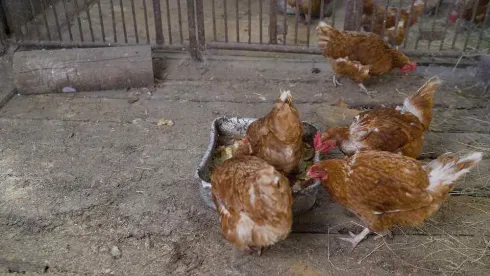Do you know where your last meal came from? Can you trace your vegetables to the field where they were grown? Do you know where the goat whose milk was used to make your feta lives? Why would you even want to know the answers to those questions? Last Fall, the FDA published a proposed Rule titled “Requirements for Additional Traceability Records for Certain Foods” which would add extra record keeping requirements to document the origin of and path to market for a number of different foods. You might ask, why is the FDA so concerned about where food comes from and where it goes? Why is the FDA targeting certain foods for extra record keeping requirements? The short answer to those questions is that certain foods are more likely to harbor food-borne pathogens, and, in the event of a food-borne illness outbreak, the FDA wants to make it as easy as possible to identify and recall food that may be impacted, pull it from the store shelves, restaurants, or consumers’ kitchens, and thereby minimize the chance that anyone will get sick.
You might be surprised at some of the foods on the proposed Rule’s Food Traceability List (FTL). Many fruits and vegetables, including tomatoes. cucumbers, all leafy greens, peppers, sprouts and melons are on the list. Nut butters are on the list, as are soft cheeses and chicken eggs. Fish with fins, crustaceans and mollusks are on the list. Additional foods could be added in the future based upon the FDA’s assessment of the risk associated with the food.
So, what does the proposed Rule require? Boiled down to its simplest explanation, when food is grown / created, it has to be assigned a Traceability Lot Code (TLC) that will follow it through the food distribution chain. The FDA created five Critical Tracking Events (CTEs): growing, receiving, transforming, creating and shipping, which are steps at which tracking information for each particular food must be maintained. At each CTE, Key Data Elements (KDEs) about the food must be kept. KDEs will vary depending upon the food and the CTE. For example, one KDE for a farm producing leafy greens would be the coordinates of the field where the greens were grown. For a packing house receiving melons from a farm, KDEs would include things such as the name of the farm, date of the harvest, identifying information for the coolers where the melons were held, etc.
Records detailing all CTEs and KDEs must be kept for two years. Records may be kept on paper or in electronic format, but there is a requirement that if requested by the FDA, to aid in response to an outbreak, recall or public health threat, the information must be provided in an electronic, sortable spreadsheet within 24 hours of the FDA’s request.
By now, this is probably sounding rather complicated. Does this mean that the vegetables you buy at the farmer’s market are going to come with a travel log? Will the shrimp you buy from a fisherman during your next trip to the Gulf Coast have a bar code? Fortunately, there will be some exemptions. Farms selling directly to consumers will be exempt, as will foods produced, packaged and labeled on the farms. There will be partial exemptions for fishing vessels. Egg producers with less than 3,000 laying hens will be exempt. A number of other exemptions or partial exemptions are also proposed. In addition, the FDA would be willing to consider waivers of the requirements of the proposed Rule in certain situations.
For those subject to the record keeping requirements (except farms), failure to comply with the requirements would be a “Prohibited Act” under section 301(e) of the Food, Drug & Cosmetic Act, which carries the possibility of criminal penalties and fines. Imported foods without the correct recordkeeping could be impounded.
If the proposed Rule is finalized by the FDA, it will go into effect 60 days after publication in the Federal Register. Compliance for all covered entities would become mandatory no later than two years from the date of the finalization of the Rule. The FDA has said that while the enhanced record keeping requirements will apply only to foods on the FTL, the FDA would encourage all food producers to voluntarily adopt the proposed Rule. If the proposed Rule goes into effect, those involved in the food supply chain - from the field or fishing vessel all the way to those who ultimately deliver the food to the final consumer - will need to make sure that they have their records in order.



 />i
/>i

